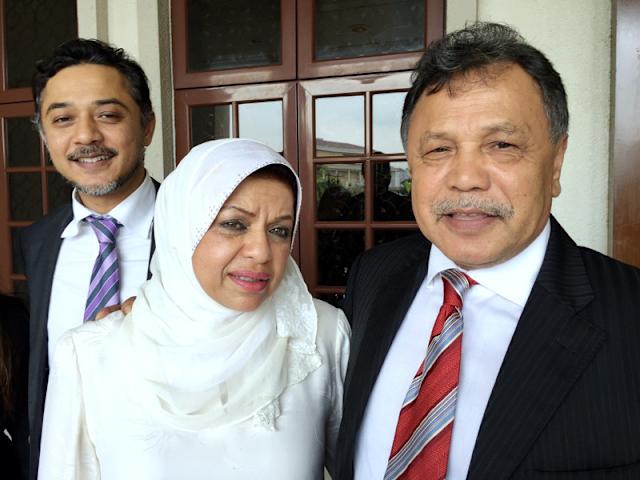SOURCE:
https://malaysia.yahoo.com/news/guan-eng-ag-sue-compel-042427605.html
20 MAY 2019
Guan Eng: AG to sue to compel NFCorp to cough up over RM250m in outstanding debt to govt

KUALA LUMPUR, May 20 — The attorney general (AG) will be mounting a lawsuit to compel the National Feedlot Corporation Sdn Bhd (NFCorp) to cough up RM253,618,455.03 which it owes the federal government, Finance Minister Lim Guan Eng said today.
Details of this latest development, however, will only be made available at a later date.
In a statement today, Lim said that the NFCorp had received a loan on January 9, 2008 to the tune of RM250 million from the federal government at an interest rate of 2 per cent, under a 20-year loan repayment three-year grace period.
The minister said that the loan was secured by a debenture, which was signed along with the loan agreement on December 6, 2007
“Based on the due diligence report by the accounting firm PwC, the Board of Directors of NFCorp for the period between December 6, 2007 and December 31, 2011 consisted of Datuk Mohamad Salleh Ismail and his children, Izran Salleh, Izmir Salleh, Izzana Salleh, as well as representatives from the federal and state governments.
Mohamad Salleh is the husband to former Umno Wanita head and former women, family and community development minister, Tan Sri Shahrizat Abdul Jalil.
“However, the latest Companies Commission of Malaysia (CCM) search conducted as of May 17, 2019 only listed Datuk Salleh Ismail as the sole director of NFCorp, and two company secretaries.
“Based on the Complete Statement of Federal Government Loans as of 30 April 2019 from the Accountant-General’s Department of Malaysia, the outstanding loan amount by NFCorp to the federal government is RM253,618,455.03, which includes interest and late interest charges as of April 30, 2019,” Lim said.
He explained that of the said sum, RM110,840,854.28 is the amount due for repayment to the federal government as of April 30, 2019, consisting of loan principal arrears of RM81,987,629.65, loan interest of RM22,967,131.55 and late interest charges of RM5,886,093.08.
Lim added that on September 4, 2014, a Notice of Declaration of Event of Default in accordance with Clause 14 of the Loan Agreement between the government and NFCorp was issued to the company.
“The Ministry of Finance has decided to seek full repayment of the loan to NFCorp and this matter was referred to the Attorney General’s Chambers on August 29, 2018 for further action. The Attorney General’s Chambers is currently looking into the matter, and will announce the latest development when available,” he added.
In July 2013, then second finance minister Datuk Seri Ahmad Husni Hanadzlah said the government had received RM79.9 million from the sum loaned to NFCorp for its NFC project, through the Anti-Money Laundering and Anti-Terrorism Financing Act 2001.
He said the government also sealed NFCorp’s assets worth RM23.3 million, namely two pieces of land in Putrajaya, two units of real estate in Menerung Township Villa and three plots of land in Gemas.
NFCorp was formed in 2007 with its subsidiary, National Feedlot Centre, to monitor, guide and train contract farmers to expand the local beef industry and move away from the government’s dependency on imported meat.
NFCorp took out a RM250 million loan from the Finance Ministry as capital to start its operations aimed at satisfying 30 per cent of the local demand for beef.
Following its formation, NFCorp found itself embroiled in a scandal, after Mohamad Salleh was charged with two counts of criminal breach of trust involving some RM49.7 million.
But in November 2015, he was acquitted.
.
